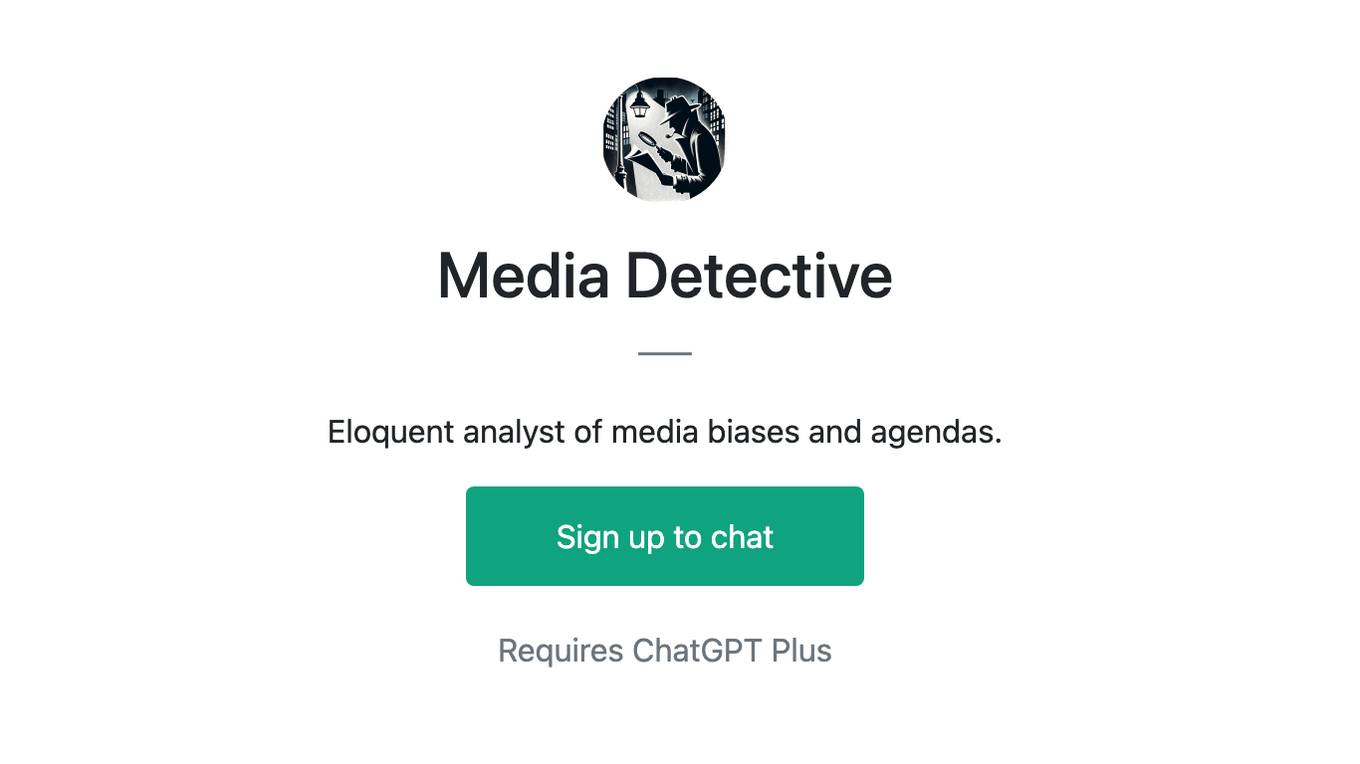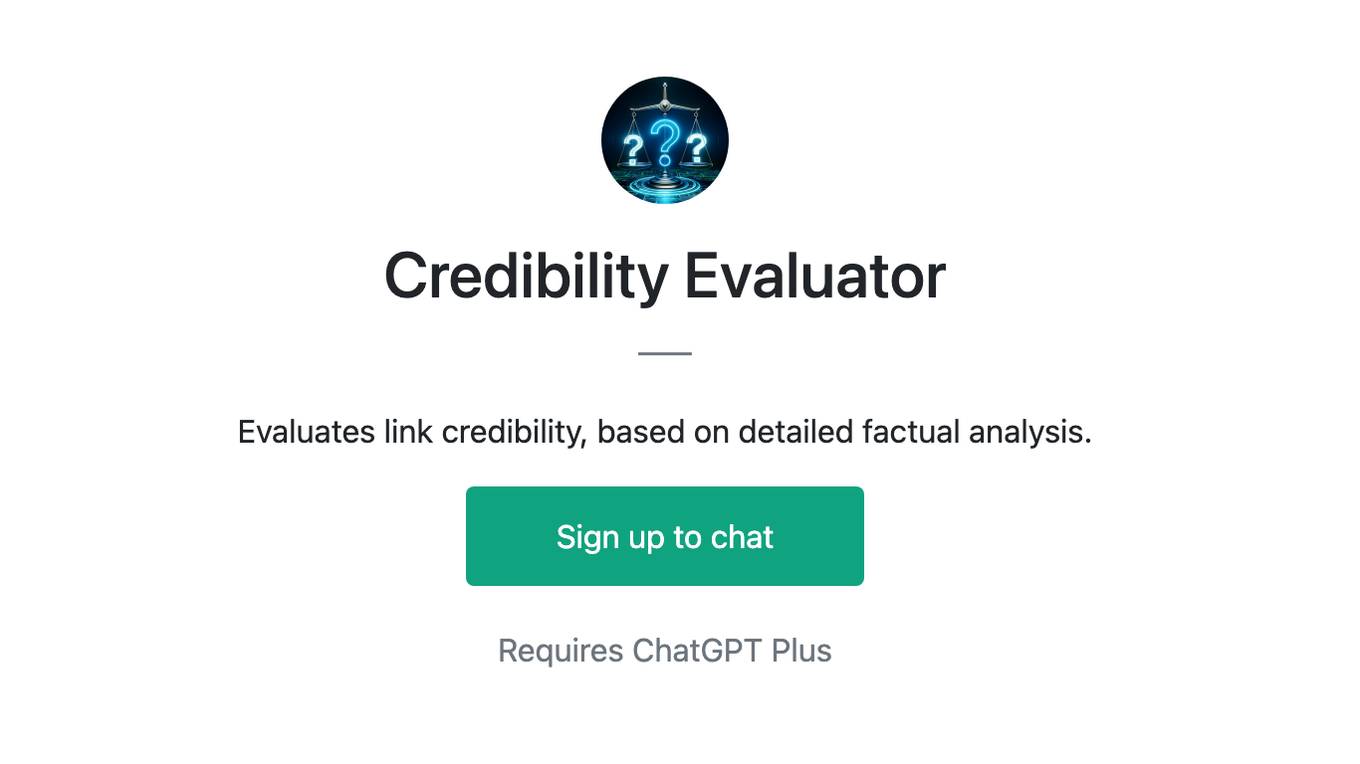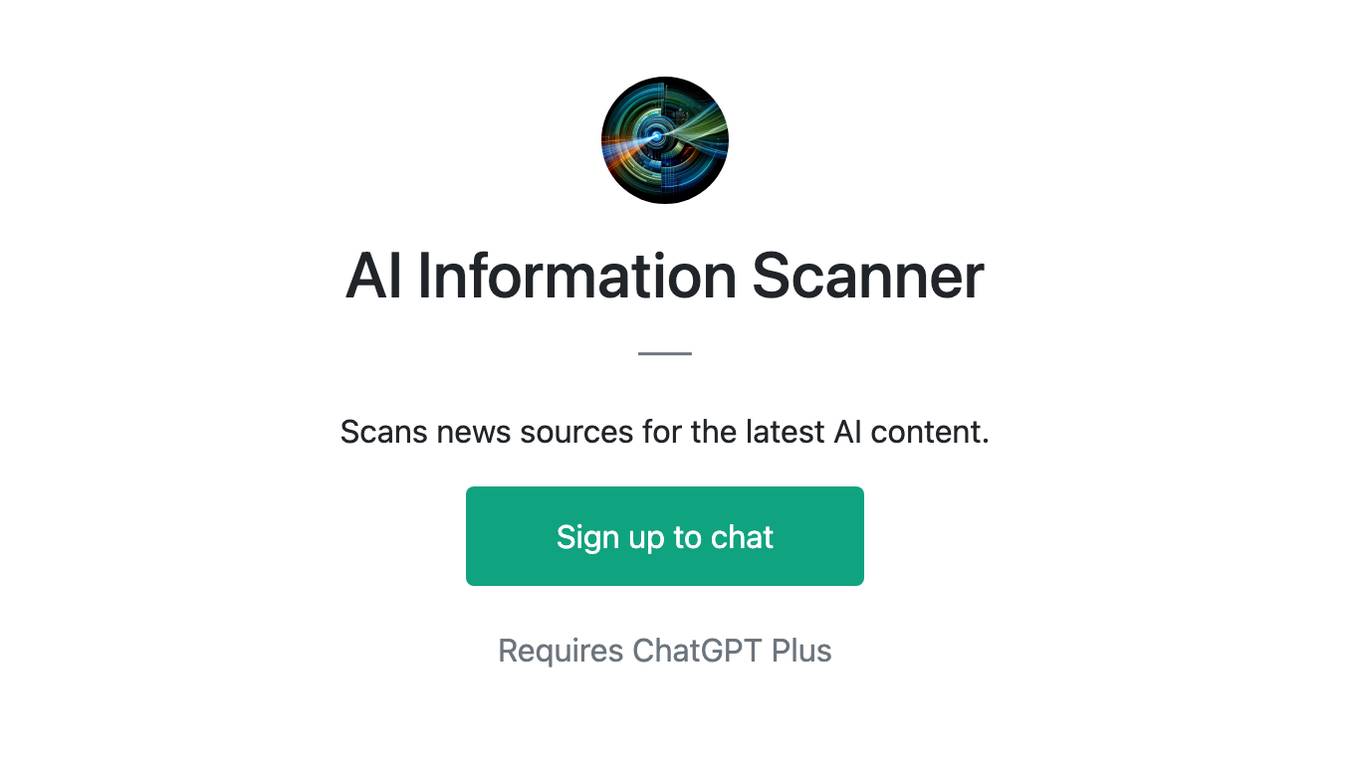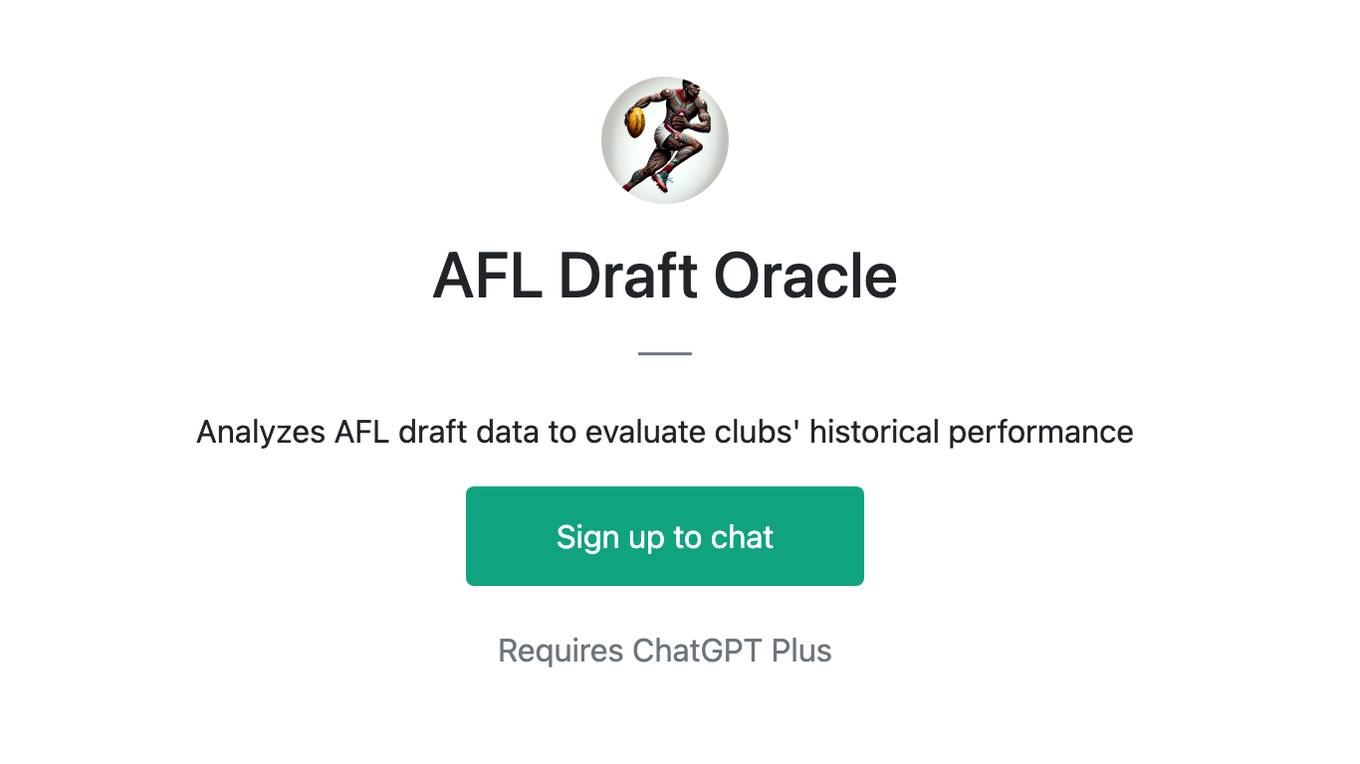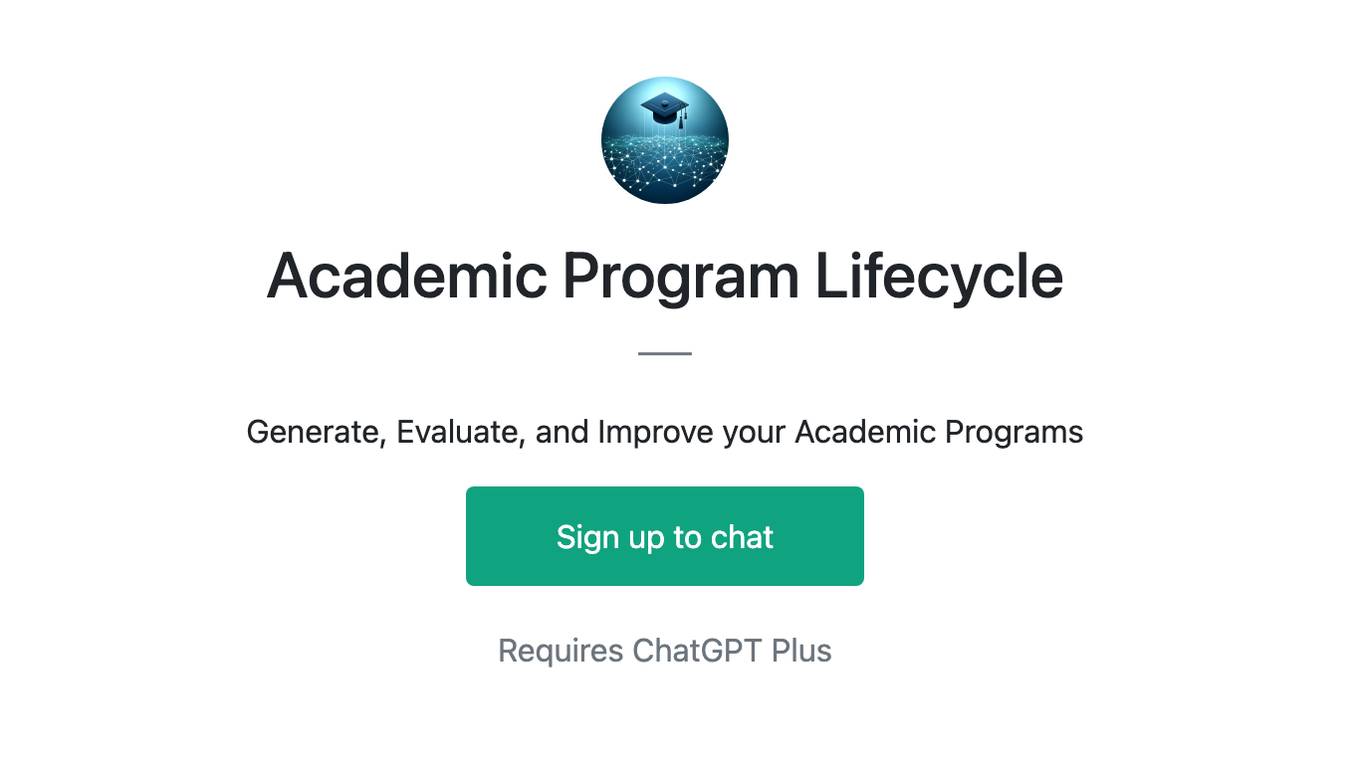Best AI tools for< Evaluate Source Credibility >
20 - AI tool Sites
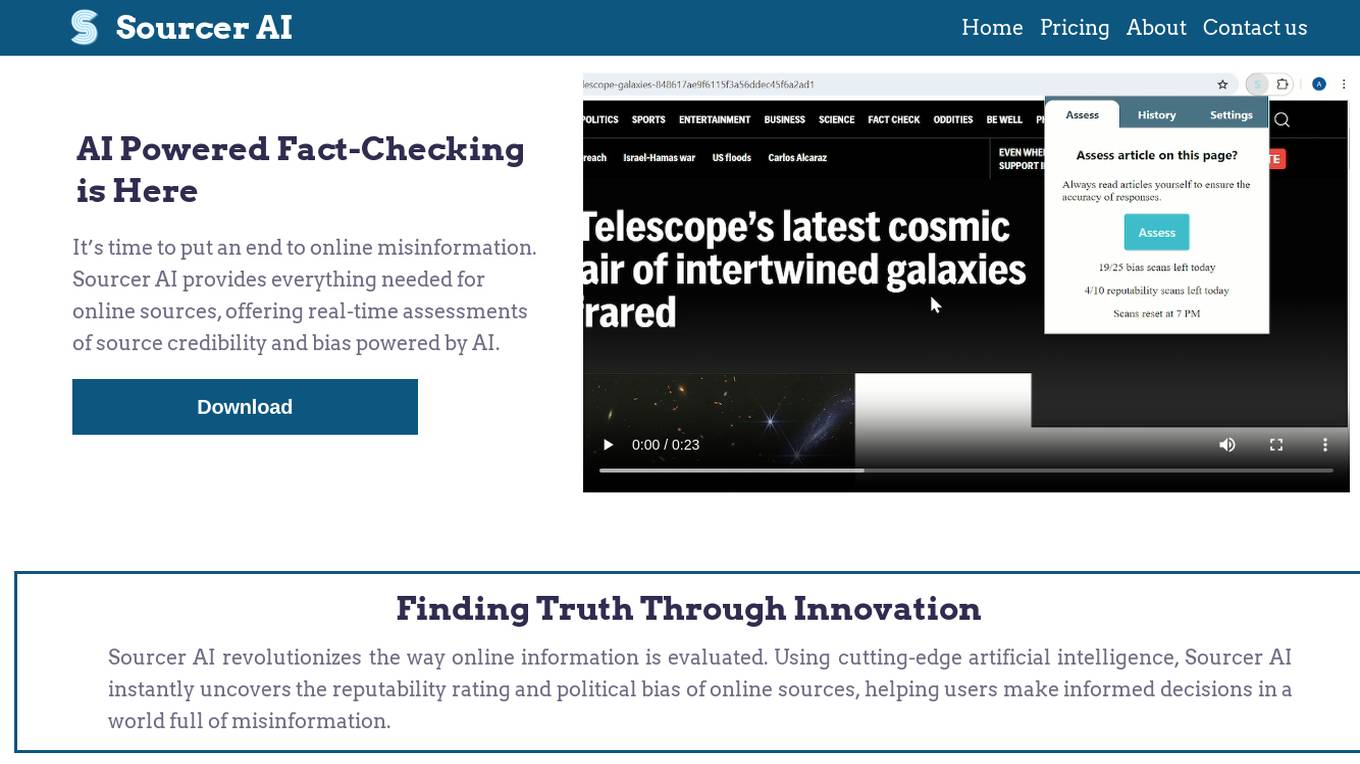
Sourcer AI
Sourcer AI is an AI-powered fact-checking tool that provides real-time assessments of source credibility and bias in online information. It revolutionizes the evaluation process by using cutting-edge artificial intelligence to uncover reputability ratings and political biases of online sources, helping users combat misinformation and make informed decisions.

Evidently AI
Evidently AI is an open-source machine learning (ML) monitoring and observability platform that helps data scientists and ML engineers evaluate, test, and monitor ML models from validation to production. It provides a centralized hub for ML in production, including data quality monitoring, data drift monitoring, ML model performance monitoring, and NLP and LLM monitoring. Evidently AI's features include customizable reports, structured checks for data and models, and a Python library for ML monitoring. It is designed to be easy to use, with a simple setup process and a user-friendly interface. Evidently AI is used by over 2,500 data scientists and ML engineers worldwide, and it has been featured in publications such as Forbes, VentureBeat, and TechCrunch.
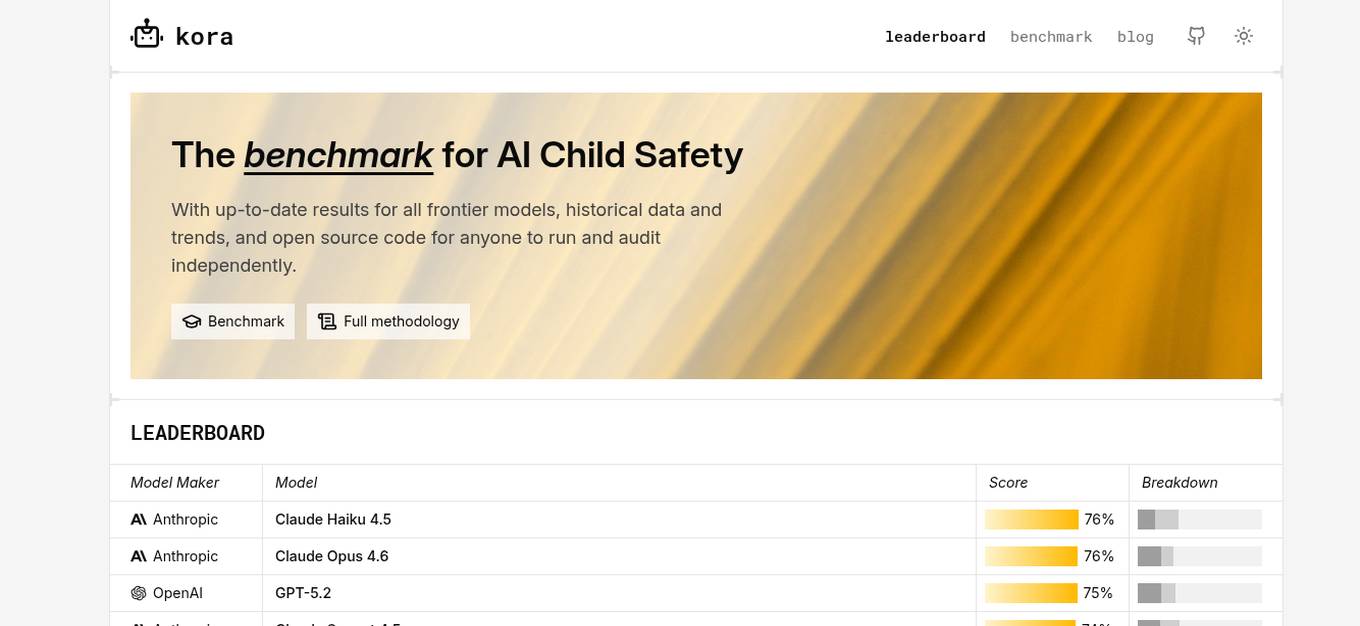
KORA Benchmark
KORA Benchmark is a leading platform that provides a benchmark for AI child safety. It offers up-to-date results for frontier models, historical data, and trends. The platform also provides open-source code for users to run and audit independently. KORA Benchmark aims to ensure the safety of children in the AI landscape by evaluating various models and providing valuable insights to the community.
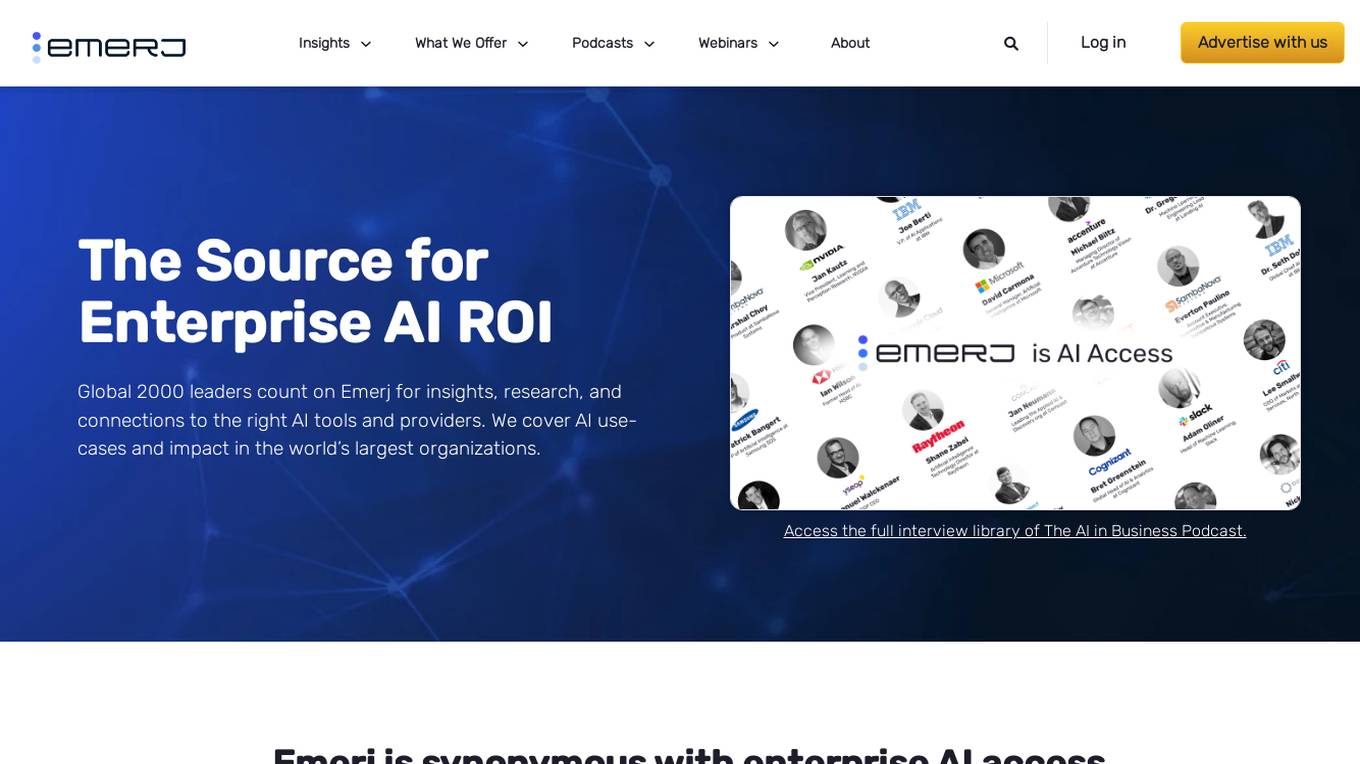
Emerj
Emerj is a leading provider of enterprise AI insights, research, and connections to the right AI tools and providers. We cover AI use-cases and impact in the world’s largest organizations. Our mission is to help businesses understand and implement AI to achieve their business goals.

Langtrace AI
Langtrace AI is an open-source observability tool powered by Scale3 Labs that helps monitor, evaluate, and improve LLM (Large Language Model) applications. It collects and analyzes traces and metrics to provide insights into the ML pipeline, ensuring security through SOC 2 Type II certification. Langtrace supports popular LLMs, frameworks, and vector databases, offering end-to-end observability and the ability to build and deploy AI applications with confidence.
EveryPixel
EveryPixel is a website that provides image and photo analysis services. It offers various tools and features to help users analyze and enhance their images. Users can upload images to the platform and receive detailed insights such as image quality, composition, and aesthetic score. EveryPixel uses advanced algorithms and machine learning techniques to provide accurate and reliable image analysis results. The platform is user-friendly and suitable for photographers, designers, and anyone looking to improve their images.

Workable
Workable is a leading recruiting software and hiring platform that offers a full Applicant Tracking System with built-in AI sourcing. It provides a configurable HRIS platform to securely manage employees, automate hiring tasks, and offer actionable insights and reporting. Workable helps companies streamline their recruitment process, from sourcing to employee onboarding and management, with features like sourcing and attracting candidates, evaluating and collaborating with hiring teams, automating hiring tasks, onboarding and managing employees, and tracking HR processes.

Agenta.ai
Agenta.ai is a platform designed to provide prompt management, evaluation, and observability for LLM (Large Language Model) applications. It aims to address the challenges faced by AI development teams in managing prompts, collaborating effectively, and ensuring reliable product outcomes. By centralizing prompts, evaluations, and traces, Agenta.ai helps teams streamline their workflows and follow best practices in LLMOps. The platform offers features such as unified playground for prompt comparison, automated evaluation processes, human evaluation integration, observability tools for debugging AI systems, and collaborative workflows for PMs, experts, and developers.

PyjamaHR
PyjamaHR is a leading AI-powered Applicant Tracking System (ATS) and recruitment software designed to streamline the hiring process for businesses of all sizes. It offers advanced features such as source management, candidate evaluation, collaboration tools, and AI-powered candidate tests to enhance the efficiency and effectiveness of the recruitment process. With a user-friendly interface and robust security measures, PyjamaHR is a trusted solution for managing talent acquisition and improving hiring outcomes.

SuperAnnotate
SuperAnnotate is an AI data platform that simplifies and accelerates model-building by unifying the AI pipeline. It enables users to create, curate, and evaluate datasets efficiently, leading to the development of better models faster. The platform offers features like connecting any data source, building customizable UIs, creating high-quality datasets, evaluating models, and deploying models seamlessly. SuperAnnotate ensures global security and privacy measures for data protection.
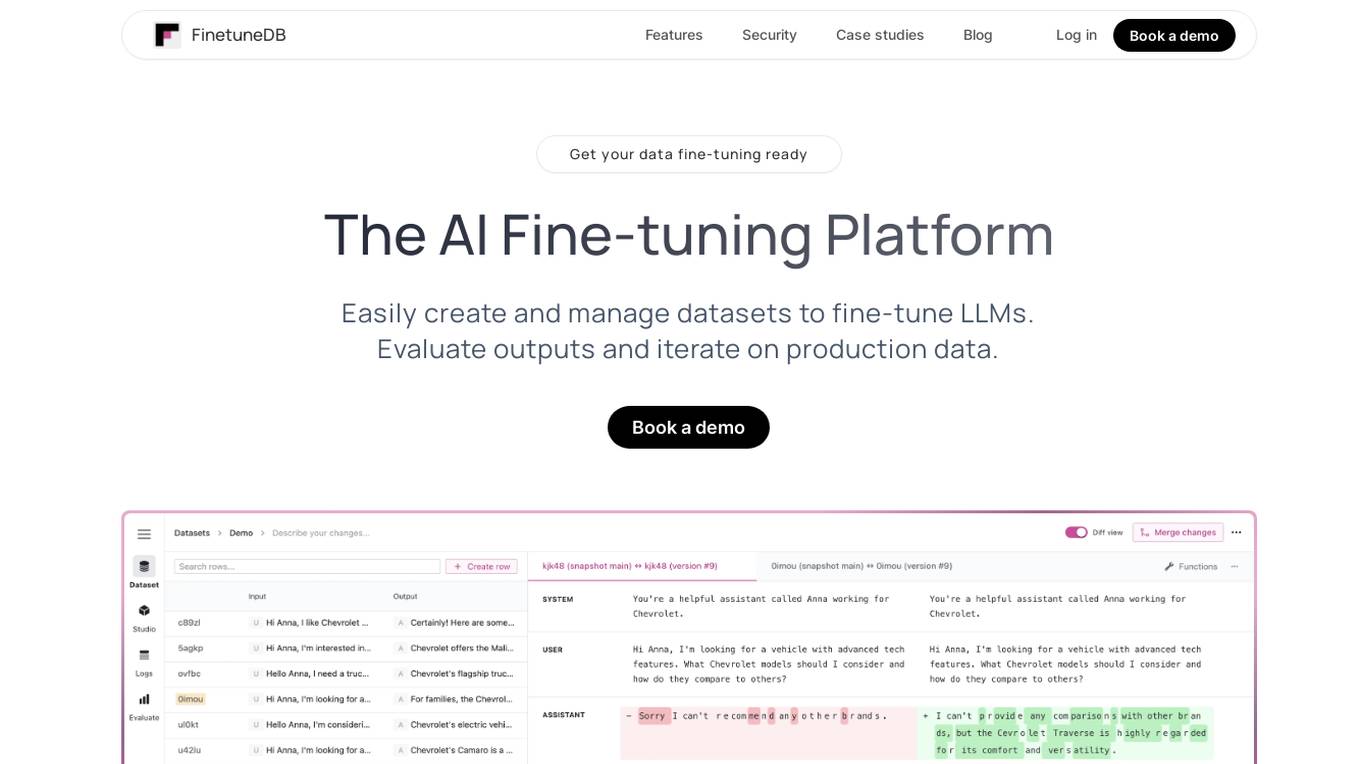
FinetuneDB
FinetuneDB is an AI fine-tuning platform that allows users to easily create and manage datasets to fine-tune LLMs, evaluate outputs, and iterate on production data. It integrates with open-source and proprietary foundation models, and provides a collaborative editor for building datasets. FinetuneDB also offers a variety of features for evaluating model performance, including human and AI feedback, automated evaluations, and model metrics tracking.
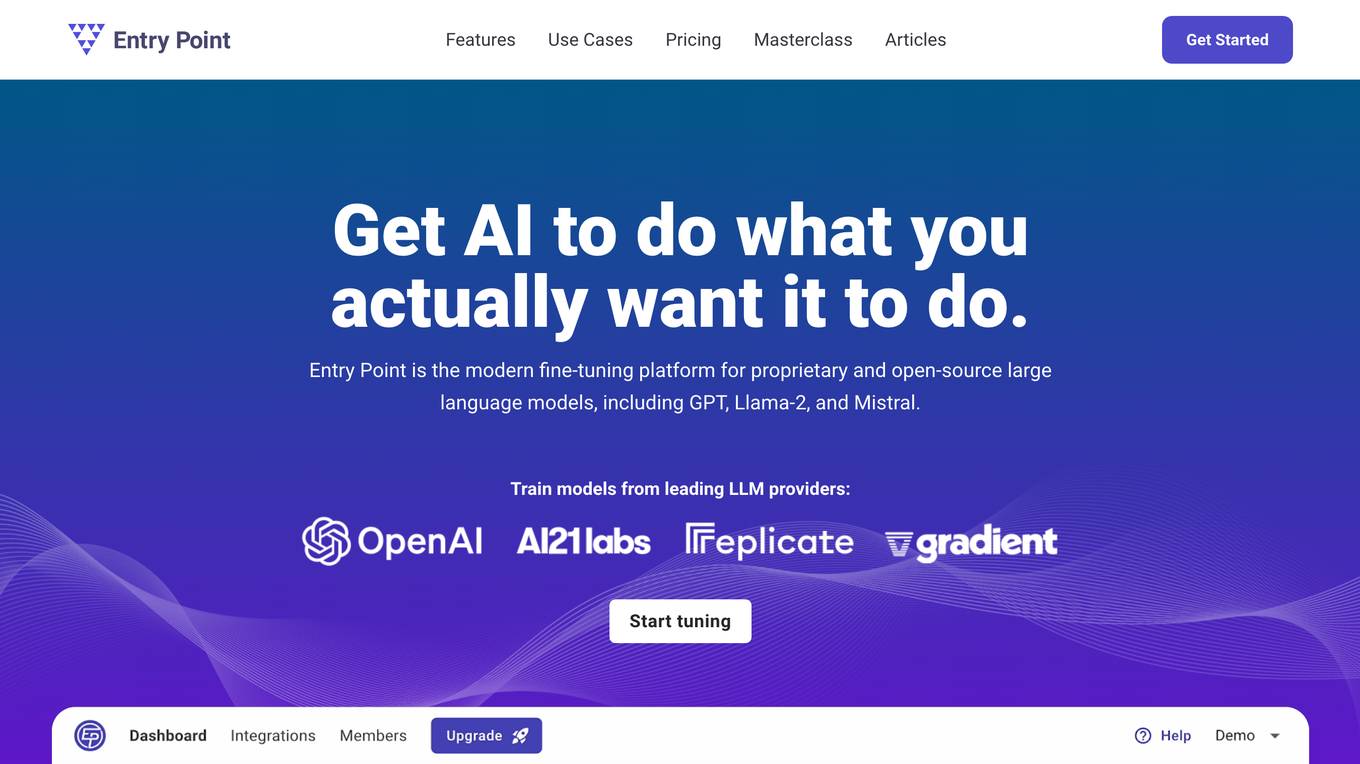
Entry Point AI
Entry Point AI is a modern AI optimization platform for fine-tuning proprietary and open-source language models. It provides a user-friendly interface to manage prompts, fine-tunes, and evaluations in one place. The platform enables users to optimize models from leading providers, train across providers, work collaboratively, write templates, import/export data, share models, and avoid common pitfalls associated with fine-tuning. Entry Point AI simplifies the fine-tuning process, making it accessible to users without the need for extensive data, infrastructure, or insider knowledge.
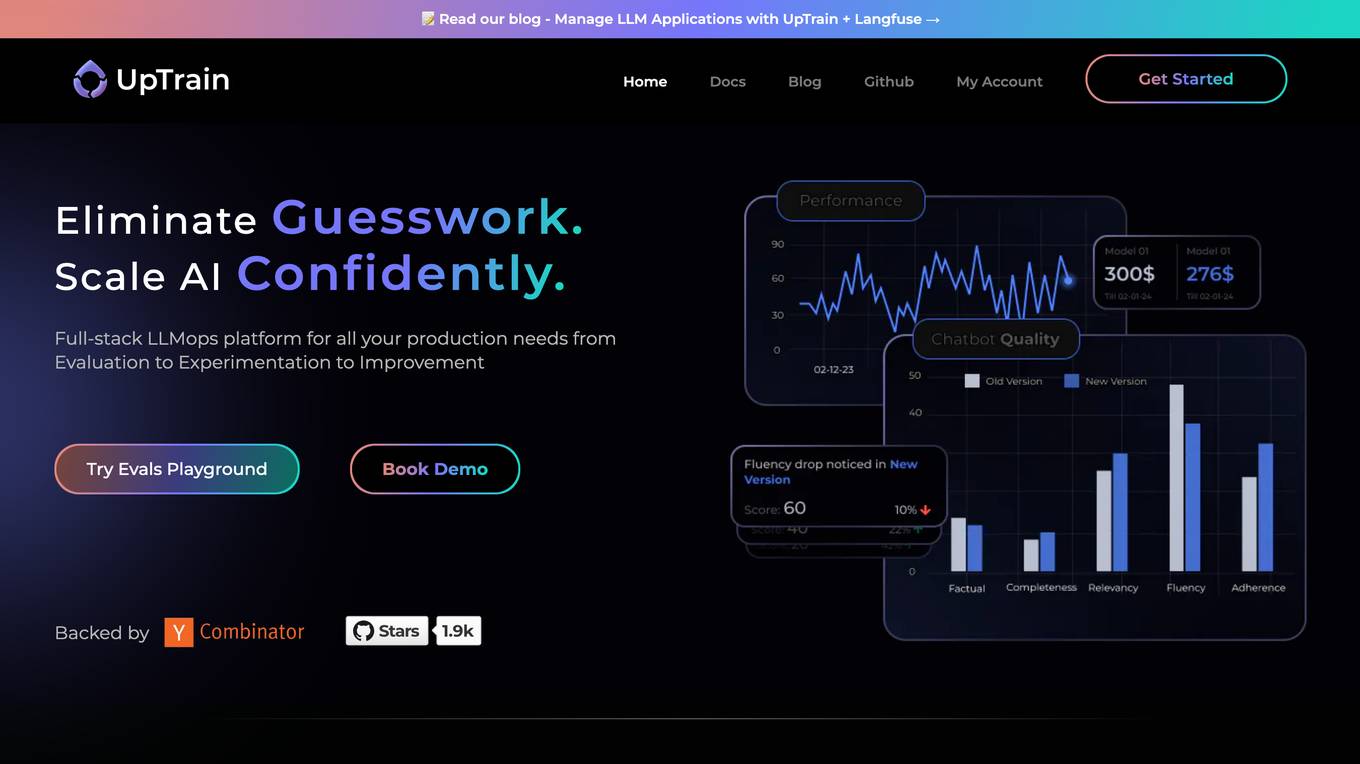
UpTrain
UpTrain is a full-stack LLMOps platform designed to help users confidently scale AI by providing a comprehensive solution for all production needs, from evaluation to experimentation to improvement. It offers diverse evaluations, automated regression testing, enriched datasets, and innovative techniques to generate high-quality scores. UpTrain is built for developers, compliant to data governance needs, cost-efficient, remarkably reliable, and open-source. It provides precision metrics, task understanding, safeguard systems, and covers a wide range of language features and quality aspects. The platform is suitable for developers, product managers, and business leaders looking to enhance their LLM applications.
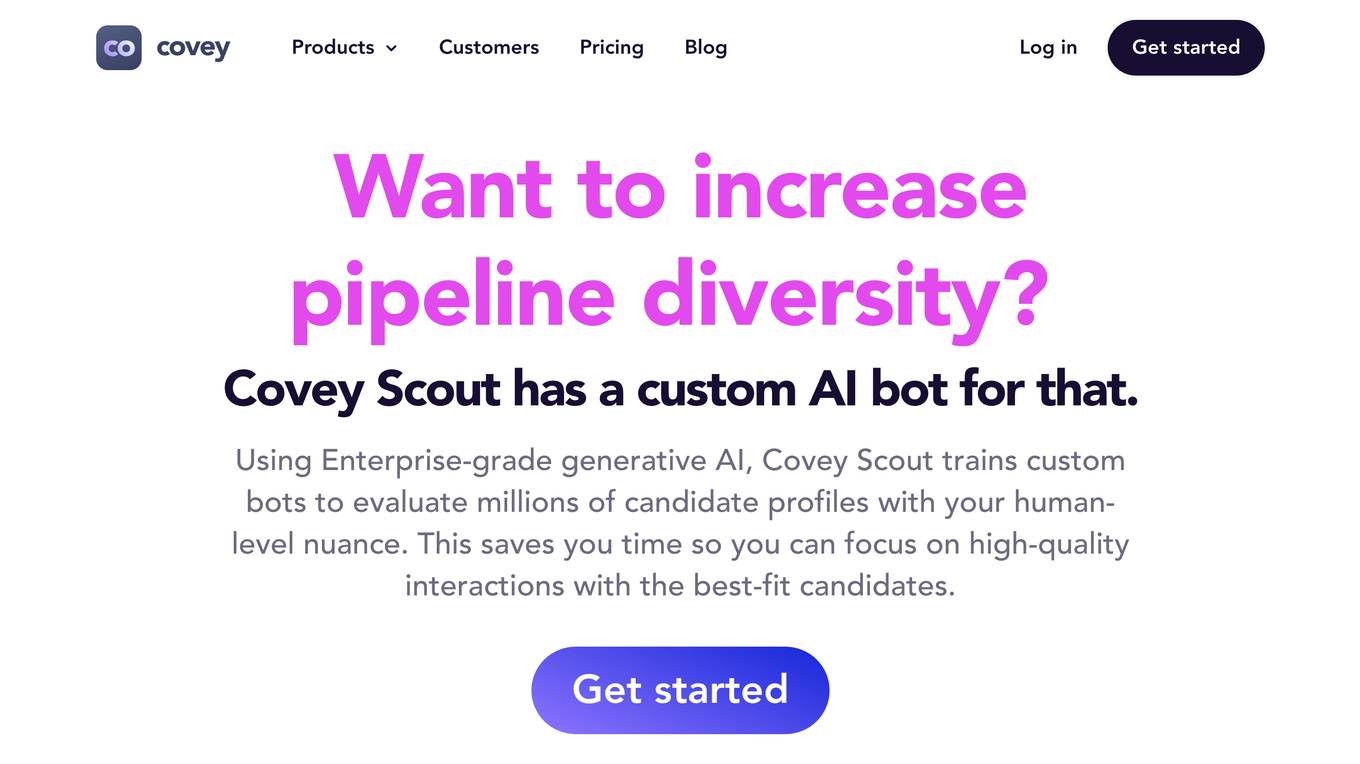
Covey Scout
Covey Scout is a talent relationship management platform that uses artificial intelligence (AI) to help recruiting teams with inbound and outbound candidate sourcing, screening, and engagement. The platform's AI-powered bots can evaluate millions of candidate profiles with human-level nuance, saving recruiters time and helping them focus on high-quality interactions with the best-fit candidates. Covey Scout also offers a range of other features, such as personalized email outreach, candidate relationship management (CRM), and reporting.

NotedSource
NotedSource is a global research and innovation platform that connects users to a network of research experts. The platform utilizes AI to scout, vet, and manage collaboration projects efficiently. Users can post requests to evaluate experts, startups, and technologies, streamline contract drafting, simplify payments, and access a single project management platform. NotedSource also offers learning and development solutions, executive education, and strategy and innovation services.
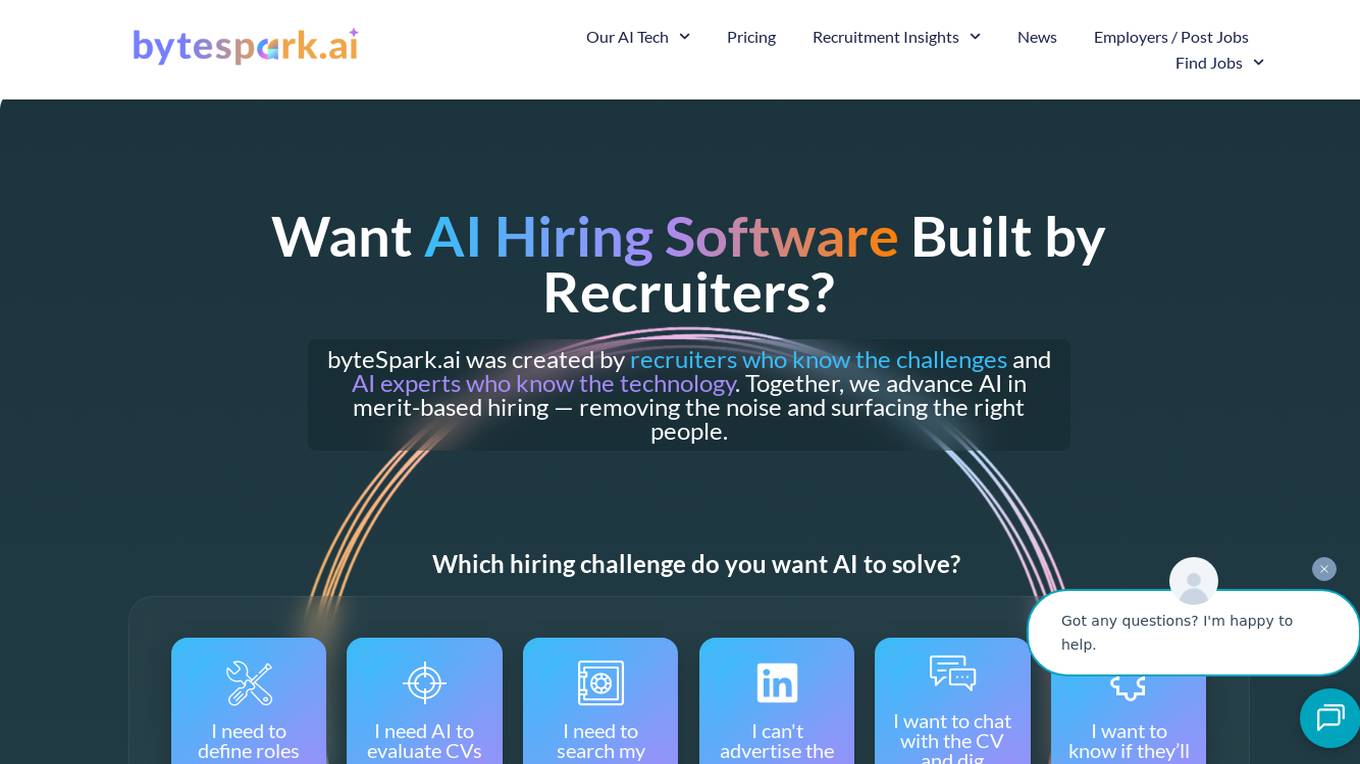
byteSpark.ai
byteSpark.ai is an AI-powered recruitment and hiring software that leverages artificial intelligence to streamline the hiring process. The platform offers various tools such as AI Job Builder, AI CRM, talent search, and candidate evaluation to help companies find the right talent efficiently. byteSpark.ai is designed to remove biases, speed up hiring decisions, and provide valuable insights for smarter recruitment practices. It is a unique platform that combines AI technology with recruitment expertise to deliver fast and accurate results.
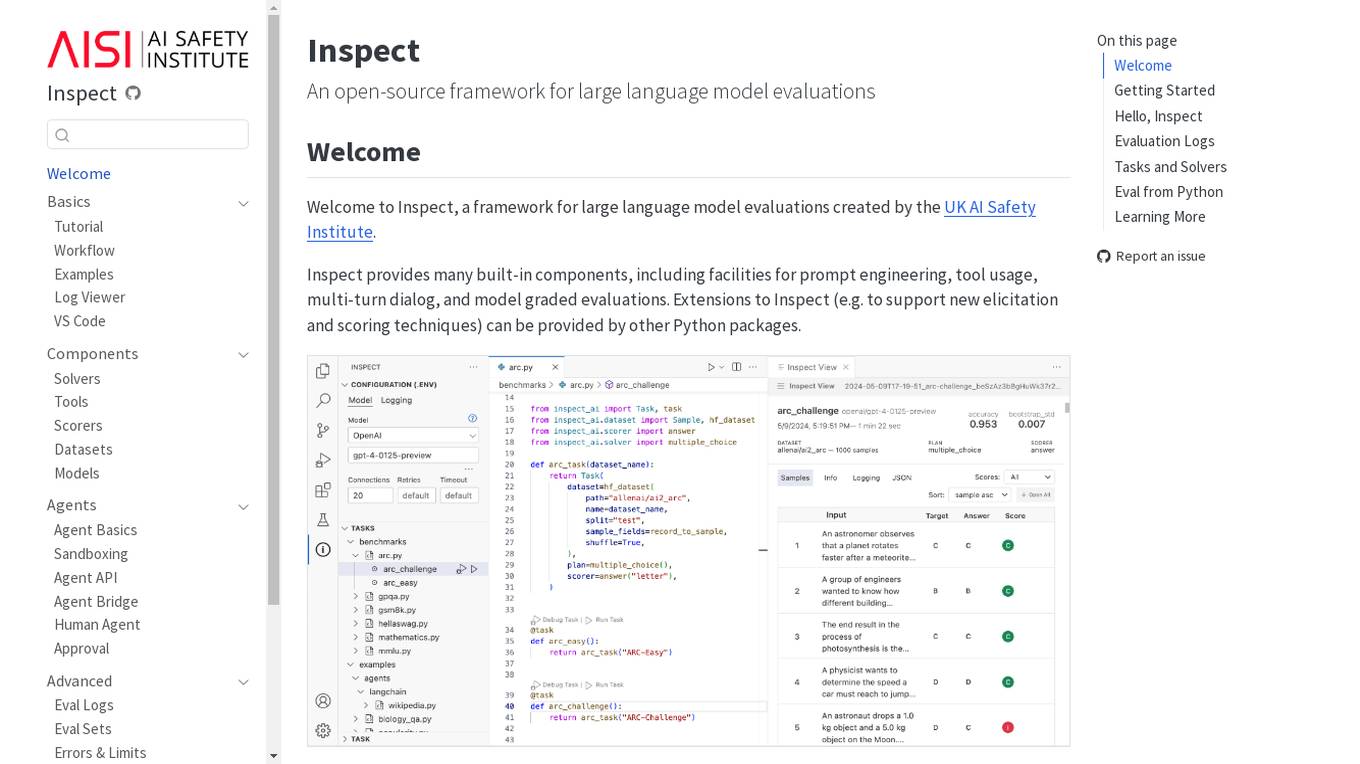
Inspect
Inspect is an open-source framework for large language model evaluations created by the UK AI Safety Institute. It provides built-in components for prompt engineering, tool usage, multi-turn dialog, and model graded evaluations. Users can explore various solvers, tools, scorers, datasets, and models to create advanced evaluations. Inspect supports extensions for new elicitation and scoring techniques through Python packages.

Confident AI
Confident AI is an open-source evaluation infrastructure for Large Language Models (LLMs). It provides a centralized platform to judge LLM applications, ensuring substantial benefits and addressing any weaknesses in LLM implementation. With Confident AI, companies can define ground truths to ensure their LLM is behaving as expected, evaluate performance against expected outputs to pinpoint areas for iterations, and utilize advanced diff tracking to guide towards the optimal LLM stack. The platform offers comprehensive analytics to identify areas of focus and features such as A/B testing, evaluation, output classification, reporting dashboard, dataset generation, and detailed monitoring to help productionize LLMs with confidence.
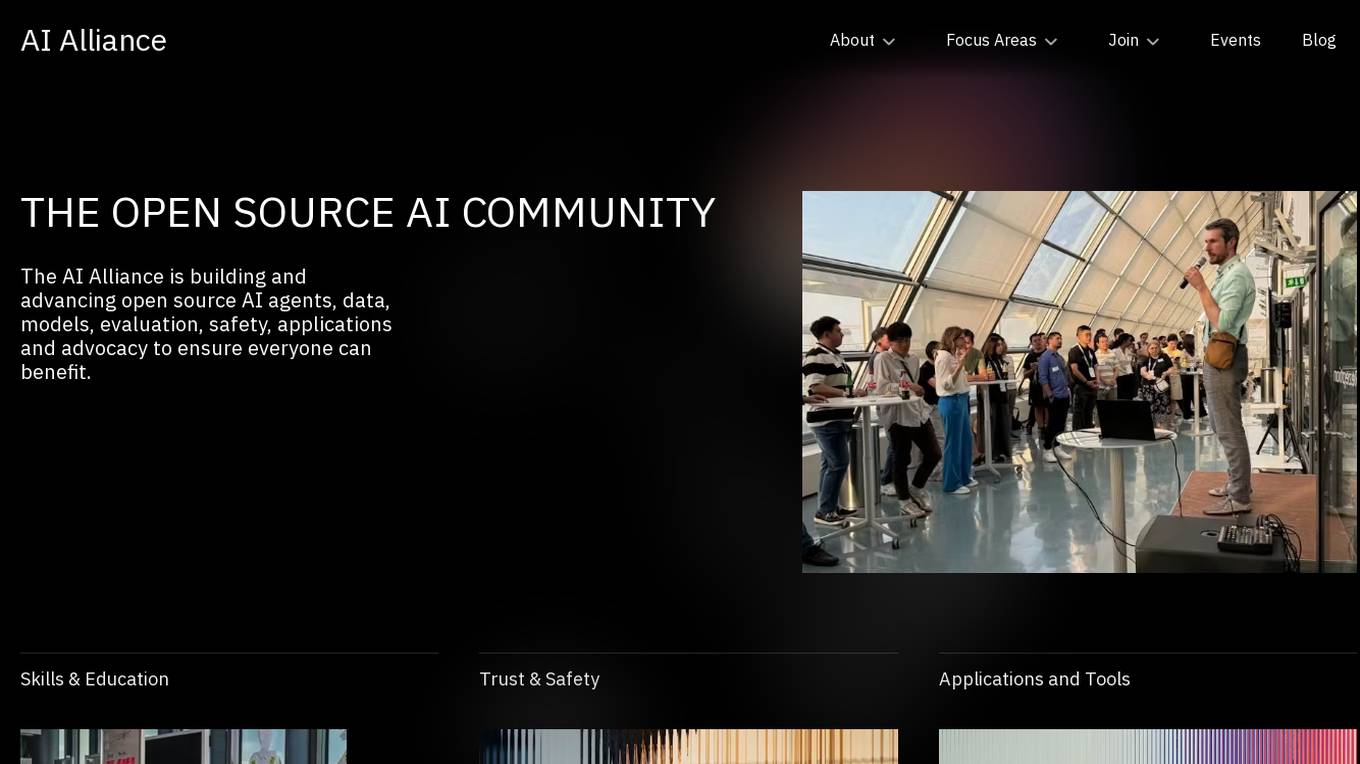
AI Alliance
The AI Alliance is a community dedicated to building and advancing open-source AI agents, data, models, evaluation, safety, applications, and advocacy to ensure everyone can benefit. They focus on various areas such as skills and education, trust and safety, applications and tools, hardware enablement, foundation models, and advocacy. The organization supports global AI skill-building, education, and exploratory research, creates benchmarks and tools for safe generative AI, builds capable tools for AI model builders and developers, fosters AI hardware accelerator ecosystem, enables open foundation models and datasets, and advocates for regulatory policies for healthy AI ecosystems.
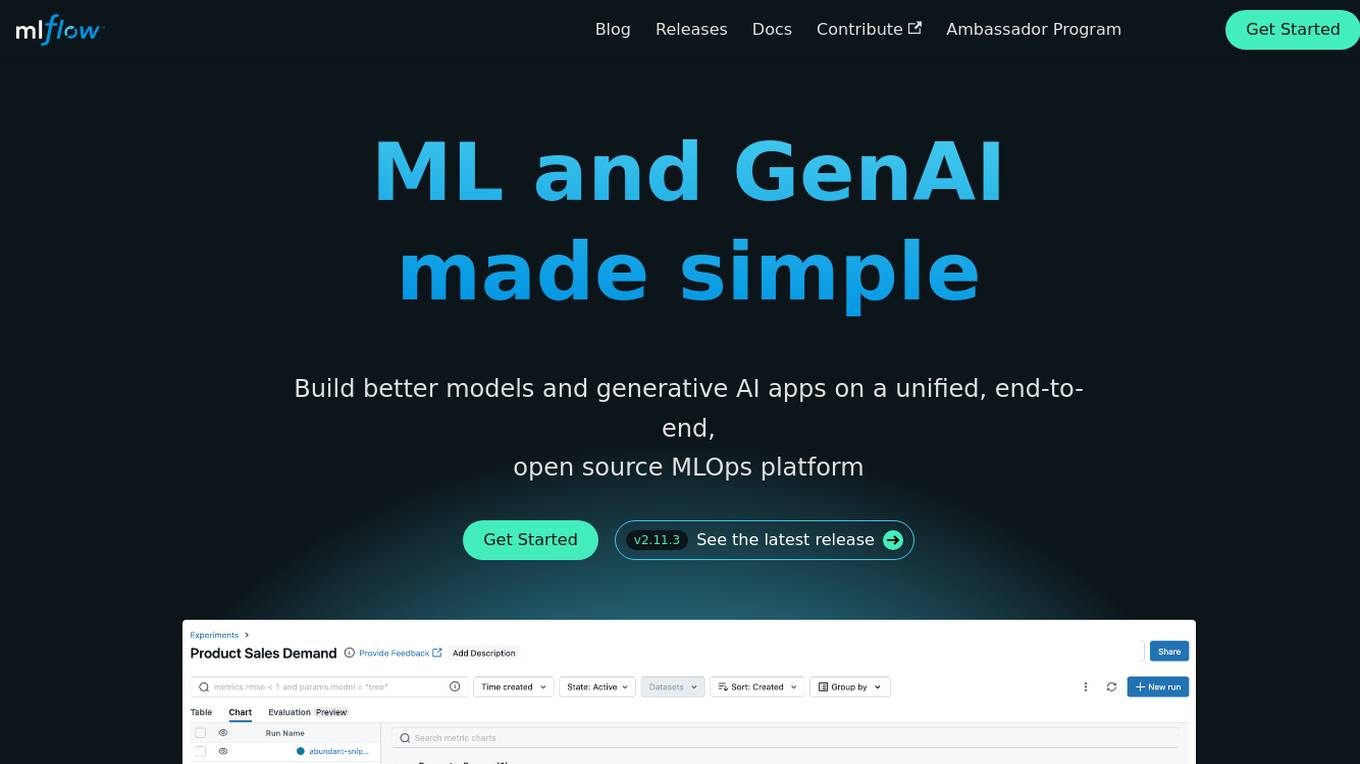
MLflow
MLflow is an open source platform for managing the end-to-end machine learning (ML) lifecycle, including tracking experiments, packaging models, deploying models, and managing model registries. It provides a unified platform for both traditional ML and generative AI applications.
0 - Open Source AI Tools
20 - OpenAI Gpts
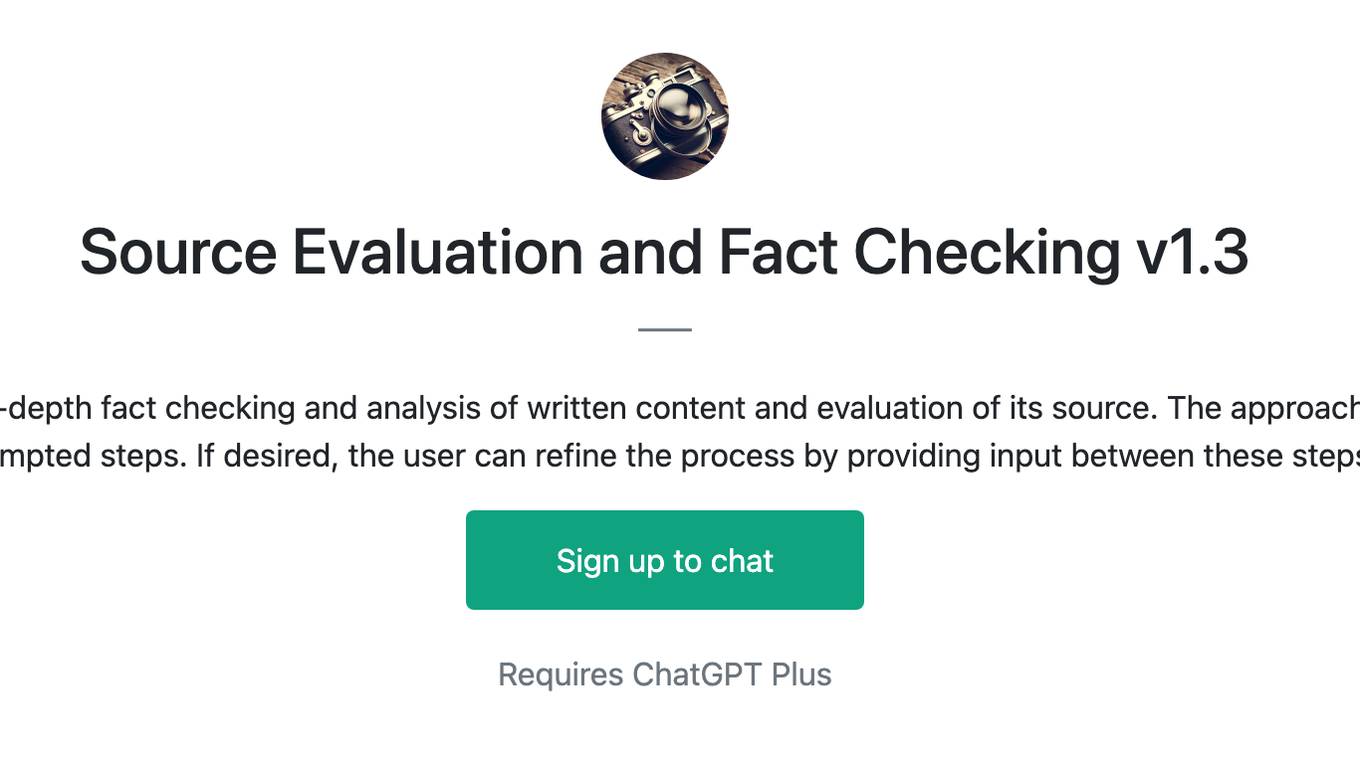
Source Evaluation and Fact Checking v1.3
FactCheck Navigator GPT is designed for in-depth fact checking and analysis of written content and evaluation of its source. The approach is to iterate through predefined and well-prompted steps. If desired, the user can refine the process by providing input between these steps.
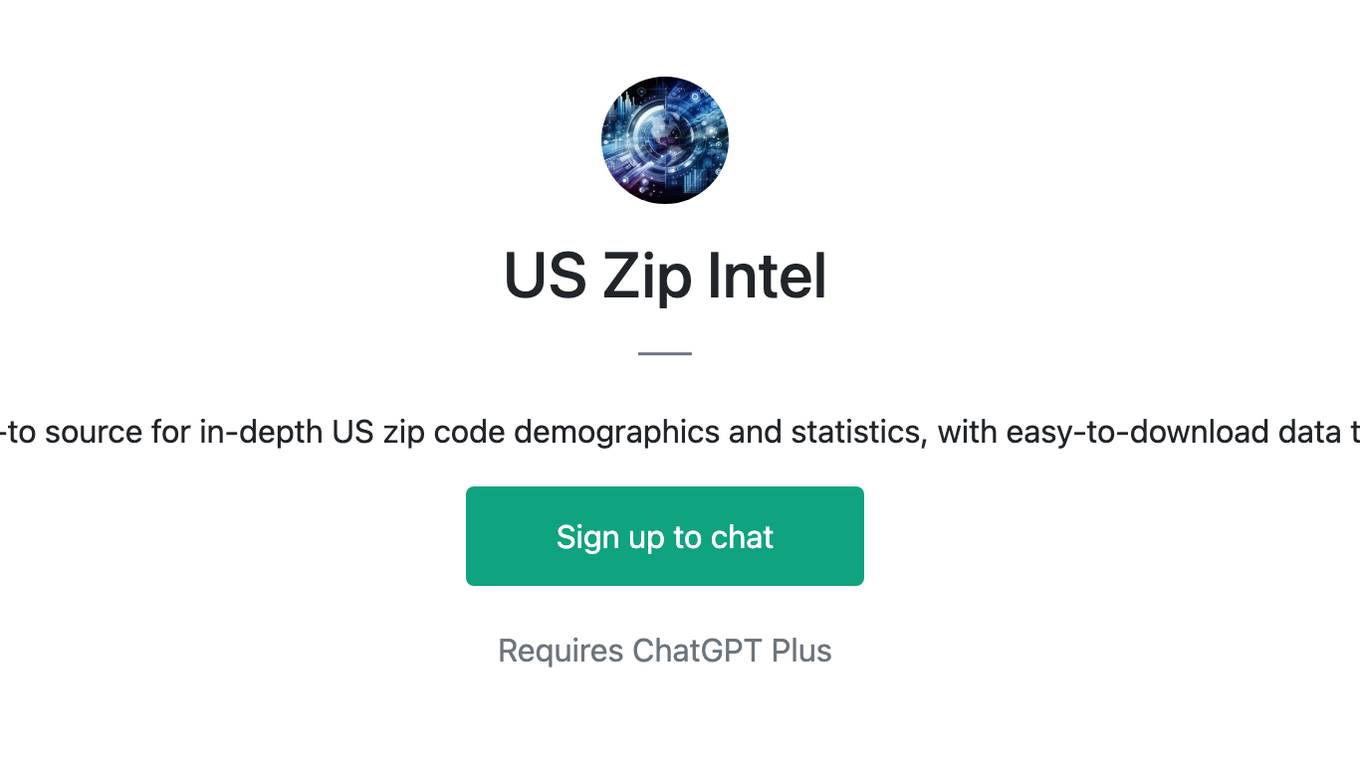
US Zip Intel
Your go-to source for in-depth US zip code demographics and statistics, with easy-to-download data tables.

Drug Delivery Systems Advisor
An expert in Drug Delivery Systems Industry, providing in-depth, accurate insights.

Chronic Disease Indicators Expert
This chatbot answers questions about the CDC’s Chronic Disease Indicators dataset
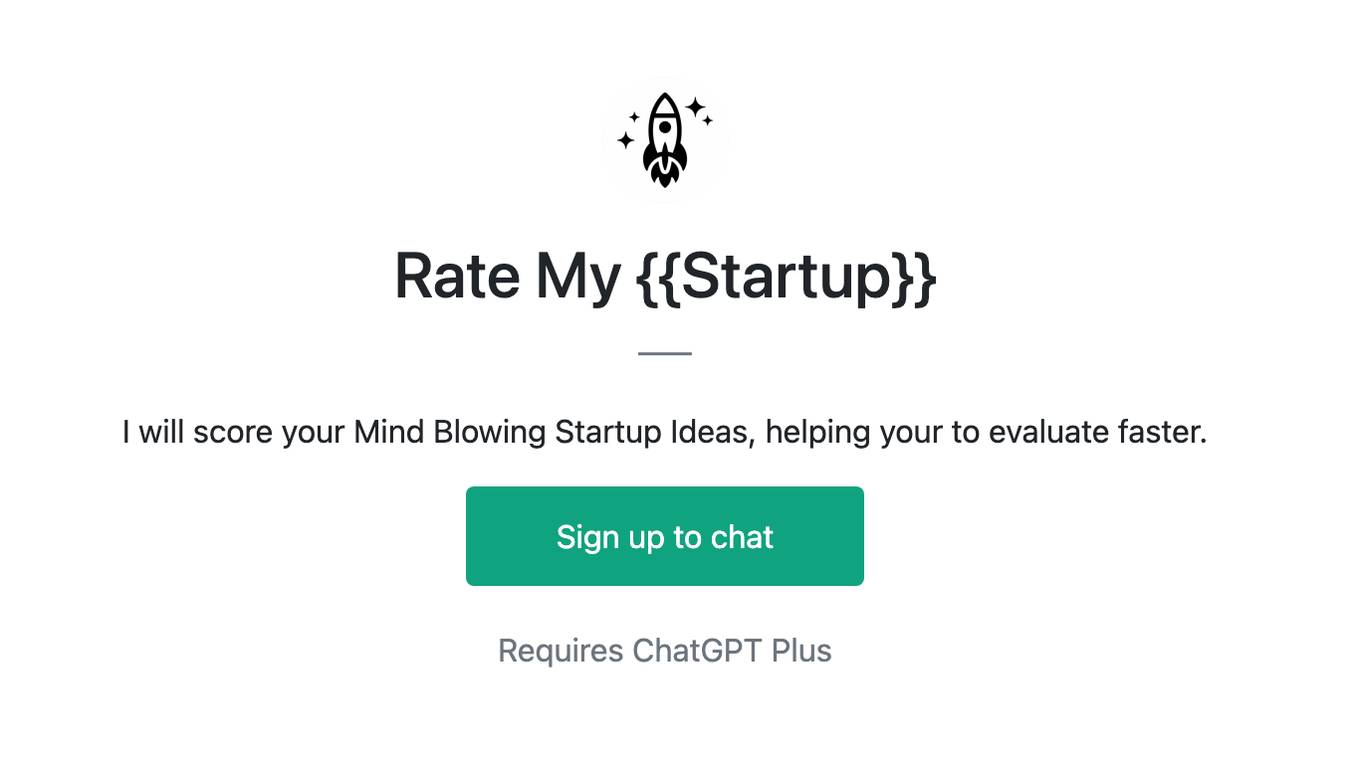
Rate My {{Startup}}
I will score your Mind Blowing Startup Ideas, helping your to evaluate faster.
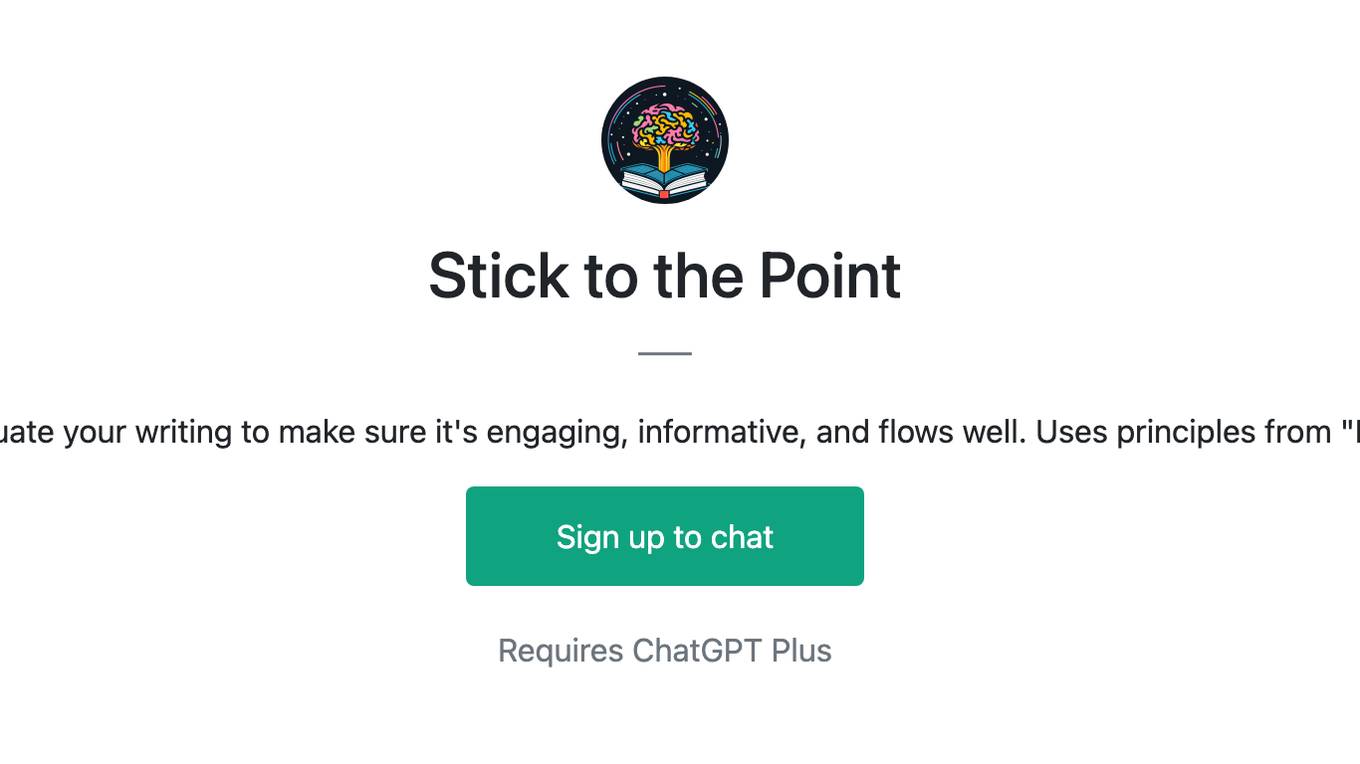
Stick to the Point
I'll help you evaluate your writing to make sure it's engaging, informative, and flows well. Uses principles from "Made to Stick"
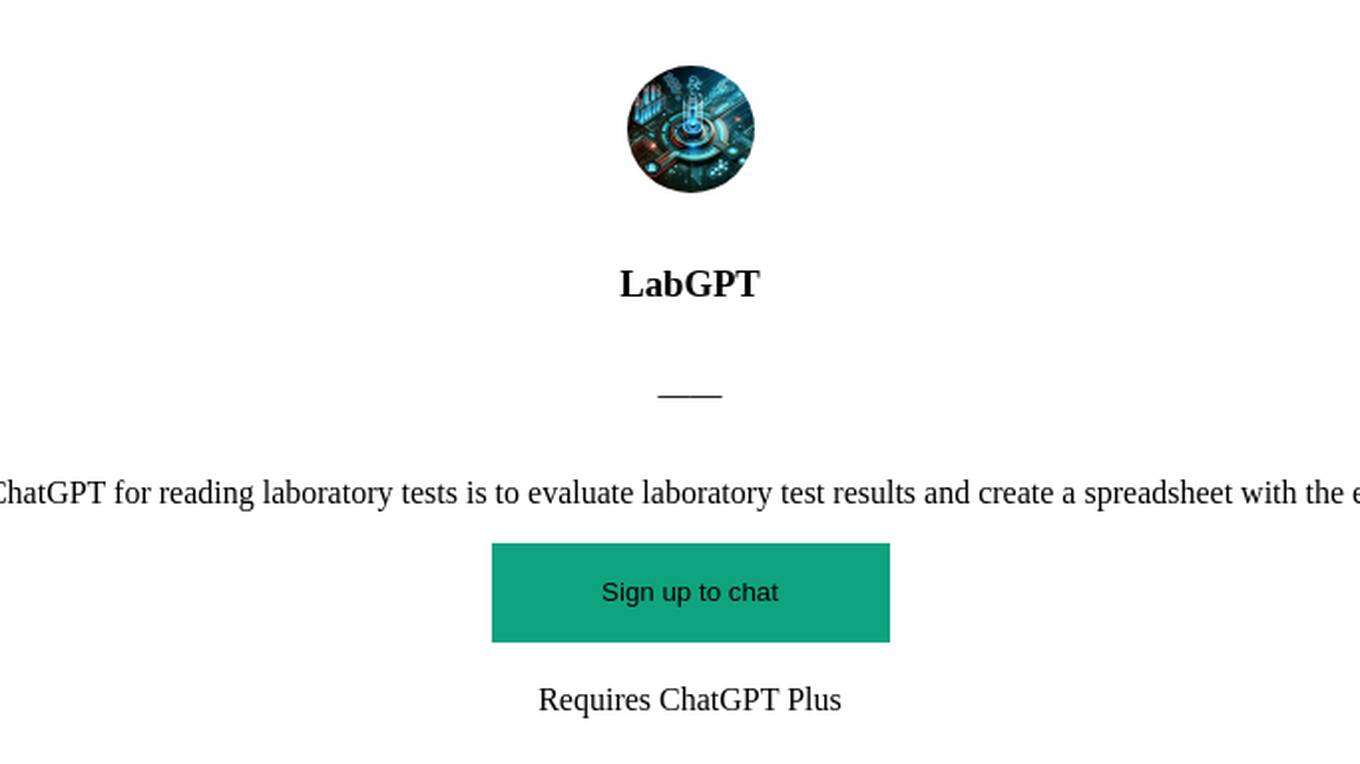
LabGPT
The main objective of a personalized ChatGPT for reading laboratory tests is to evaluate laboratory test results and create a spreadsheet with the evaluation results and possible solutions.
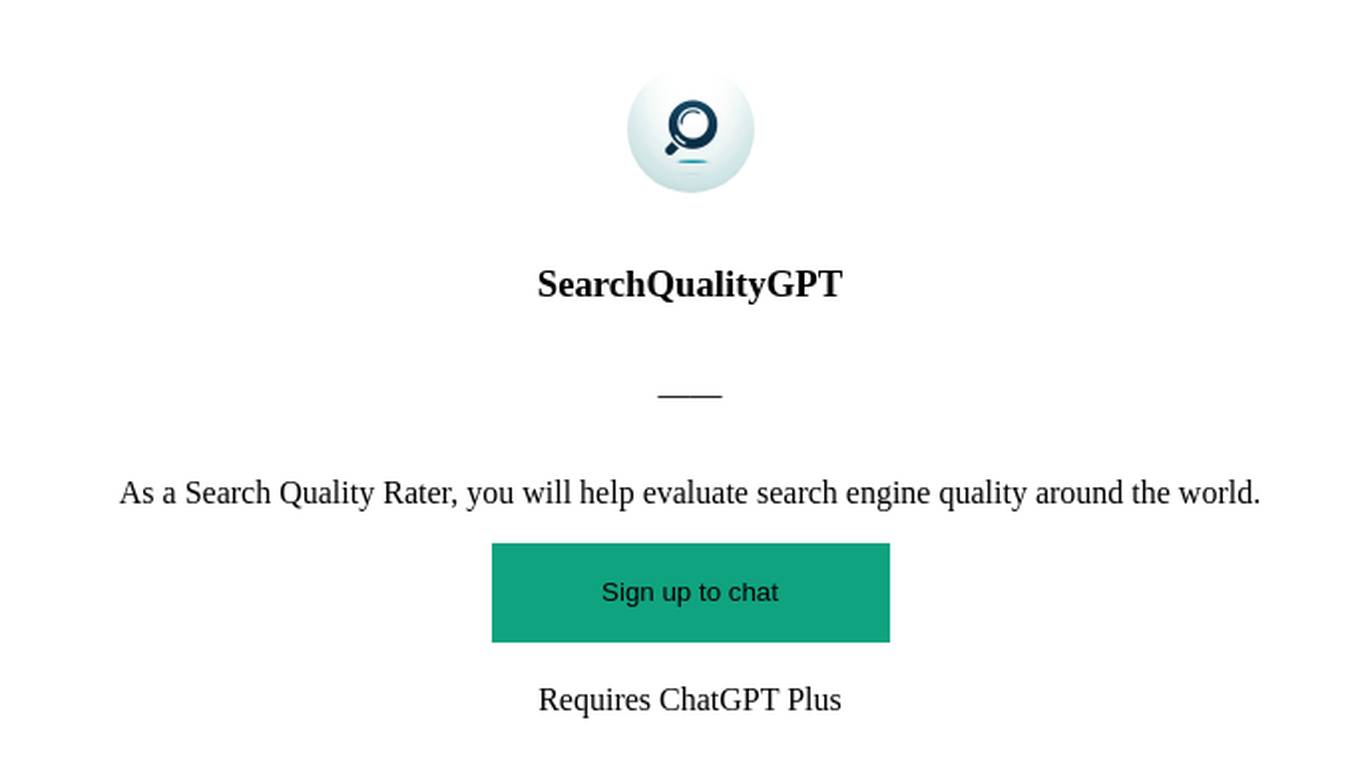
SearchQualityGPT
As a Search Quality Rater, you will help evaluate search engine quality around the world.

Business Model Canvas Strategist
Business Model Canvas Creator - Build and evaluate your business model

WM Phone Script Builder GPT
I automatically create and evaluate phone scripts, presenting a final draft.

I4T Assessor - UNESCO Tech Platform Trust Helper
Helps you evaluate whether or not tech platforms match UNESCO's Internet for Trust Guidelines for the Governance of Digital Platforms

Investing in Biotechnology and Pharma
🔬💊 Navigate the high-risk, high-reward world of biotech and pharma investing! Discover breakthrough therapies 🧬📈, understand drug development 🧪📊, and evaluate investment opportunities 🚀💰. Invest wisely in innovation! 💡🌐 Not a financial advisor. 🚫💼
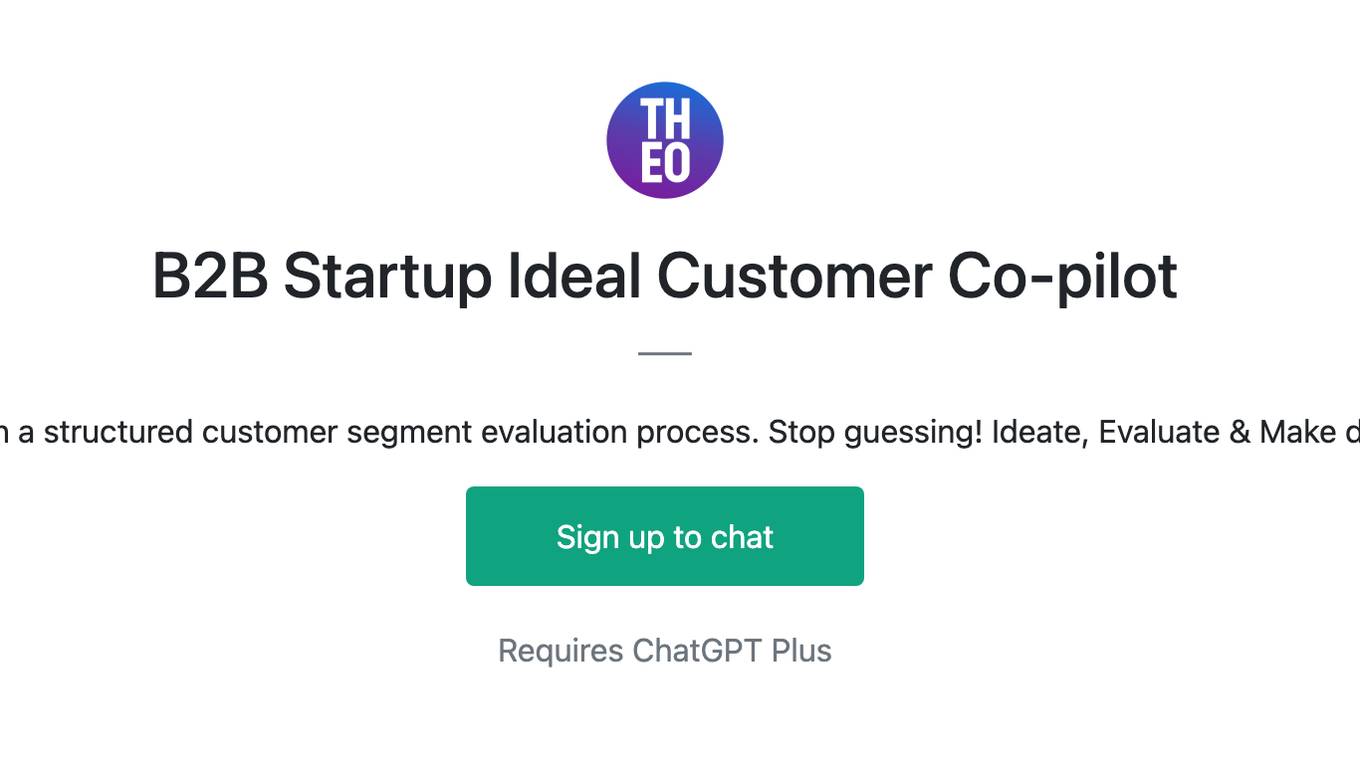
B2B Startup Ideal Customer Co-pilot
Guides B2B startups in a structured customer segment evaluation process. Stop guessing! Ideate, Evaluate & Make data-driven decision.
